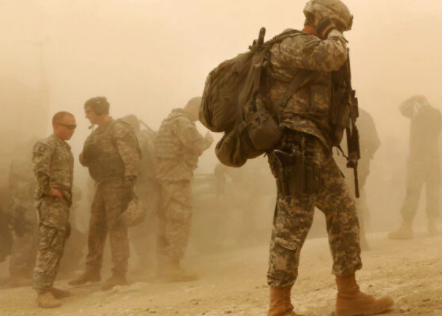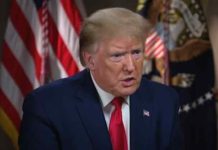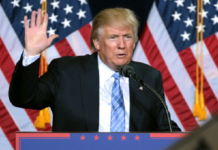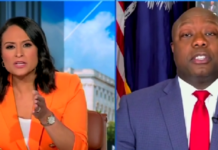UK Defense Secretary Grant Shapps has cautioned that the world has now embarked on a “pre-war” stage, with nations gearing up for the growing likelihood of a global conflict.
In a speech delivered at Lancaster House in London, Shapps highlighted that Britain is confronted with potential conflicts involving Russia, China, Iran, and North Korea within the next five years. He emphasized the importance of increased defense expenditure for Britain and its allies.
“The era of the peace dividend is over,” he asserted.
“In five years’ time we could be looking at multiple theatres involving Russia, China, Iran, and North Korea,” Shapps added.
The future of the global order is now in jeopardy, as stated by the highest-ranking official in the United Kingdom. It was emphasized that China closely observed whether the Western nations would lose their patience. Furthermore, it was revealed that Iran had successfully enriched uranium to a concerning level of 83.7 percent, which is utilized in the production of nuclear weapons.
Additionally, North Korea posed a threat by expressing intentions to expand its arsenal. Regrettably, Shapps, a representative of the UK Government, was unable to provide a specific timeline for achieving the target of allocating 2.5 percent of the country’s GDP towards defense spending.
However, he vowed that he would “strive to reach it as soon as possible.”
Shapps affirmed that despite the cautions, there are no intentions to overturn the reductions implemented by Boris Johnson, which resulted in the Army being comprised of 73,000 personnel, marking its lowest number in 300 years.
“I haven’t changed the plans,” he noted.
“A lot of people confuse and conflate troop numbers with how well-defended you are.”
During his concise campaign for the leadership of the Conservative Party, Shapps advocated for a defense expenditure equivalent to three percent of the Gross Domestic Product (GDP).
Today, he said the country faced tough choices “on the future of our national defenses.”
“The choice is stark,” he added.
“Some people, especially on the Left, have a tendency to talk Britain down.
“They believe Britain can no longer have the power to influence world events.
“I passionately believe these unpatriotic, Britain-belittling doom-mongers are simply wrong.”
Senior defense sources have revealed that UK Prime Minister Rishi Sunak has expressed hesitancy in allocating funds to the Ministry of Defence (MoD) at the expense of other sectors. This comes at a time when tensions have been escalating globally since Russia’s invasion of Ukraine in February 2022, with concerns of the world inching closer to the possibility of a third world war. Recently leaked military documents have shed light on Vladimir Putin’s strategic plan to push the West towards the brink of a major conflict. These classified files outline a potential “path to conflict” orchestrated by Putin, with a climax projected for 2025 on a day referred to as “Day X,” where half a million NATO and Russian soldiers could potentially face each other.
The documents obtained by Germany’s Ministry of Defence, and subsequently disclosed by Bild, provide detailed insights into how the Kremlin leader may be preparing for a hybrid attack on NATO as early as the upcoming winter, followed by a full-scale war in the following summer. The plan could commence with a spring offensive against Ukraine, as Putin mobilizes a significant number of new soldiers in the coming weeks.
Additionally, Putin’s alliance with North Korean dictator Kim Jong Un has strengthened their bond over shared anti-Western sentiments. Recently, Putin authorized the launch of North Korean rockets in Ukraine, resulting in the loss of hundreds of lives.
During a lavish banquet, Kim expressed his confidence in the Russian army’s ability to triumph over what he perceives as “evil.” Furthermore, Kim has openly declared South Korea as his “principal enemy” and issued threats of initiating a war, with his possession of nuclear weapons adding to the gravity of the situation.
Chinese Communist Party leader Xi Jinping has emerged as a formidable dictator who instills fear among world leaders. Under his authoritarian regime, China has witnessed severe human rights violations against the Uyghur population, a suppression of freedom in Hong Kong, and a growing threat of an invasion of Taiwan. In fact, former US Secretary of State Mike Pompeo has emphasized that Xi poses a far greater danger than even Vladimir Putin.
Xi’s recent New Year address, reminiscent of Putin’s ambitions in Ukraine, has further raised concerns about the “reunification” of Taiwan with mainland China. Observers speculate that Beijing might employ tactics such as blockades to exert control over the island, while others fear a large-scale military landing on Taiwan’s shores. The potential consequences of any misstep in this volatile situation are alarming, as warned by a retired British Army general.
Meanwhile, the threat posed by Iran has escalated in recent months, particularly following the October 7 massacre in Israel, which triggered a new conflict between Israeli forces and the terrorist group Hamas. This conflict has drawn in neighboring countries such as Iraq, Syria, Yemen, and Lebanon, as well as the United Kingdom and the United States. Iranian proxies, including Hezbollah and the Houthis, have engaged in confrontations with Israel, the US, and the UK, heightening concerns of a full-scale war in the Middle East.
Mark Wallace, former US Ambassador to the United Nations under President George W. Bush, now warns that Iran’s regime is driven by a destructive agenda that extends far beyond the Middle East. Wallace emphasizes that Tehran’s pursuit of nuclear weapons is just one aspect of its global campaign of terror, with both the US and the UK firmly in its crosshairs.




